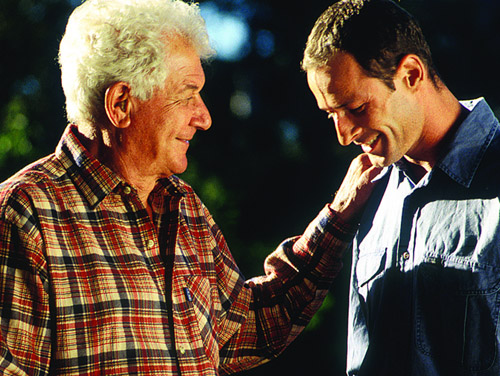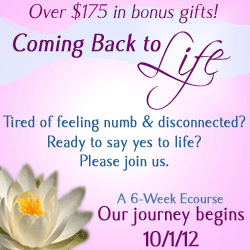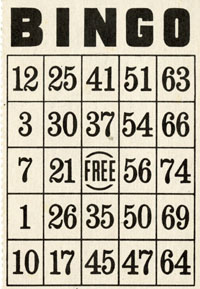
I don’t know how common it is in real life, but it seems to happen a lot in teen movies: a young trouble-maker puts alcohol in a fruit punch (frequently at a high school dance or some otherwise wholesome, youth-oriented event).
While this would be a horrible thing to do in real life (for so many reasons–foremost among them, giving someone alcohol without their knowledge or consent), it makes a great metaphor: adding spirit(s) into an otherwise ordinary substance or activity.
So, how can we bring a (non-alcoholic) “spike” to our own lives?
Around this time of year, lots of us are making resolutions–planning on turning over a new leaf, exercising more, eating better, buckling down and getting disciplined. But why do so many of these good intentions fall by the wayside before President’s Day arrives?
There are plenty of reasons–lack of discipline, willpower, or commitment–but I’ll bet that for a lot of us it comes down to something even more basic: a lack of fun!
But what if you could keep your New Year’s resolutions by having fun? What if you could find ways to inject some spirit and short-term enjoyment into the things that bring you long-term health and fulfillment?
Here are some ways:
- Don’t just eat healthier–eat yummier! No one’s going to stick to a menu of nutritionally enhanced cardboard. But if you find the best tasting foods that fit in with your diet, you’re much more likely to stick to it–and enjoy every bite!
- Replace grueling exercise with fun movement! I’ve never been a masochist when it comes to exercise (or anything else). I’ve never set foot in a gym, and the very notion of a workout makes me want to run for the hills (unless the hills are too steep). But I’m happy to walk my dog for 40 minutes a day or play Wii dancing games with my wife. Why? Because it doesn’t feel like exercise–it’s just a type of fun that happens to involve moving.
- Replace discipline with “blissipline”! A few years ago, I heard a life coach use the word “blissipline,” and I fell in love with the concept, which you can apply to almost any area of your life. Instead of forcing yourself to plow through unpleasant tasks (for the sake of some future payoff), see if you can find the bliss in whatever you’re doing right now–getting lost in the joyful flow of the activity itself. (And if you can’t, maybe it’s time to consider doing something else!)
And this “spiking the punch” principle isn’t just for New Year’s resolutions–you can apply it to almost any area of your life. Are there times that feel dull or ordinary that you might be able to “spike”–to sneak in some spirit?
- Could you sing along to your favorite music while you’re washing the dishes?
- Could you play road games during a long drive (even if there are no kids in the car)?
- Could you spice up your business meetings or everyday work by adding contests or other ways to get people enthusiastically involved?
- Or could you simply make your errands more enjoyable by making a point to compliment at least one person you see at each stop?
Although it’s a tautology, it’s worth remembering that we don’t like to do what we don’t like to do. And we tend not to do what we don’t like to do.
But rather than give up when the going gets dull, maybe this year we can find ways to add more fun, more life, and more spirit into our resolutions and into our everyday lives–even the parts that are good for us!
And maybe we’ll find that it’s not either/or: we can live a healthy life, move toward our long-term goals, AND enjoy every moment of it!
…
Do you have any resolutions for this year? What are some ways you could make them more fun? How else can you add more spirit to your everyday life?

 You’ve probably had this experience–perhaps recently. Or maybe you’re about to have it in the coming weeks. It might be at a holiday party or a family event or while traveling on a plane. You find yourself next to a stranger, and one of you strikes up a conversation–but before long, the awkward truth becomes all too clear:
You’ve probably had this experience–perhaps recently. Or maybe you’re about to have it in the coming weeks. It might be at a holiday party or a family event or while traveling on a plane. You find yourself next to a stranger, and one of you strikes up a conversation–but before long, the awkward truth becomes all too clear: During the Christmas season, people tend to talk (and sing) more about the voices of angels. Whether it’s singing a carol (such as “Angels We Have Heard on High” or “Hark! The Herald Angels Sing”) or complimenting an “angelic” choir, we imagine angels’ voices to be transcendently beautiful.
During the Christmas season, people tend to talk (and sing) more about the voices of angels. Whether it’s singing a carol (such as “Angels We Have Heard on High” or “Hark! The Herald Angels Sing”) or complimenting an “angelic” choir, we imagine angels’ voices to be transcendently beautiful.

 I was recently on the phone with a personal-growth author while she was driving to her son’s soccer game. We were discussing her latest book when she suddenly said, “Oops! I took a wrong turn! Can I call you back?” A few minutes later she called to say she was back on track, and we resumed our conversation (until she reached the soccer field).
I was recently on the phone with a personal-growth author while she was driving to her son’s soccer game. We were discussing her latest book when she suddenly said, “Oops! I took a wrong turn! Can I call you back?” A few minutes later she called to say she was back on track, and we resumed our conversation (until she reached the soccer field).

 This week I have the honor of interviewing a very special person–in fact, the most special person in my life: my wife, Jodi Chapman.
This week I have the honor of interviewing a very special person–in fact, the most special person in my life: my wife, Jodi Chapman.
 What do you think Is the most important word in the English language?
What do you think Is the most important word in the English language?
 BINGO!
BINGO!